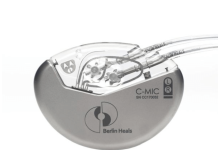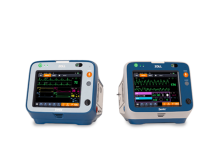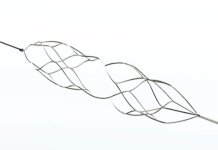Arizona-based diagnostic imaging firm Maui Imaging has emerged from stealth, revealing a $4m deal with the US Department of Defense (DOD) to support its trauma response across the military using the company’s ultrasound device.
The deal revolves around Maui’s ultrasound imaging device, dubbed MAUI K3900, which is designed for use in the case of mass casualty events or in situations where resources are limited. The company claims that the ultrasound device uses unfocused “pings” that are launched into the body from a wide probe that is curved similar to the human body, allowing it to produce more detailed results than other ultrasounds.
Related: FDA clears portable blood, IV fluid warmer from Mequ
Now, Maui plans to announce its deal with the US Army Medical Research and Development Command (MRDC) at the Military Health System Research Symposium (MHSRS) taking place on 26-29 August in Florida.
The announcement follows after the MAUI K3900 received 510(k) clearance from the US Food and Drug Administration in which MAUI was required to conduct comparative image testing proving it can effectively image with a simple probe.
Maui Imaging CEO and co-founder David Specht said: “Every time we present the system to a physician or health care professional, we learn about an unmet imaging need that they have. MAUI’s ability to image inside the cranial vault was inspired by the military and their needs with respect to traumatic brain injury, but upon presentation of the system to other physicians such as paediatric neurosurgeons, they let us know about their needs to image not only inside the cranial vault but also spinal structures in real-time.”
At the same time, Maui is working on adding additional features to the device including software features that would use AI to produce clearer and speedier results through the company’s own exclusive datasets.
Specht added: “With the US military contract and our technology becoming more visible on a broader stage, we’ve decided it’s time to come out of stealth and show what we have been working on.
“The feedback we have received from physicians and technologists highlights the profound need for a new ultrasound-based technology that enables imaging of all types of tissues. That need is most pronounced in trauma medicine, which is a major focus of Maui’s collaborative development efforts.”
Elsewhere in the field of diagnostic imaging, GE Healthcare has teamed up with the University of California San Diego School of Medicine to explore advanced magnetic resonance imaging techniques for female pelvic diseases.




